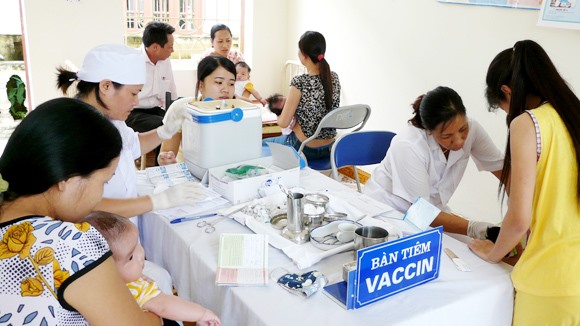The vaccination programme for children meets the basic requirements of quality and safety, the Preventive Health Department of the Health Ministry said on Monday.

Children are given rubella vaccines in Thai Nguyen Province.
The confirmation follows recent social media posts urging parents to boycott vaccination with baseless information that it causes autism and epilepsy in children. The information caused many parents to panic and completely avoid vaccinations.
All vaccines pass a strict evaluation process to ensure safety and quality. However, like other drugs, vaccines do not ensure absolute safety, an official of the department said.
Vaccines introduce antigens into the body to induce an immune response, which varies from person to person. Regular side-effects include light fever, swelling or pain at the injection site. The symptoms usually disappear within 24 hours.
However, some children have had strong reactions such as high fever, convulsions, anaphylactoid shock, and even death. These were specific reactions to vaccines but do not reflect on their quality, the official said.
Therefore, highlighting results of fatal cases must be carefully and scientifically analysed by doctors and specialists to avoid any misunderstandings and lead to a negative impact on the community’s health, he said.
In Viet Nam, the national vaccination programme has achieved progress and helped change disease patterns in children. As a result, polio and newborn tetanus were eliminated in 2000 and 2005, respectively. However, the risks of diseases were still high and vaccination was very important to maintain the achievements.
The Law on Infectious Disease Prevention regulates that vaccination is compulsory for children.
VNS